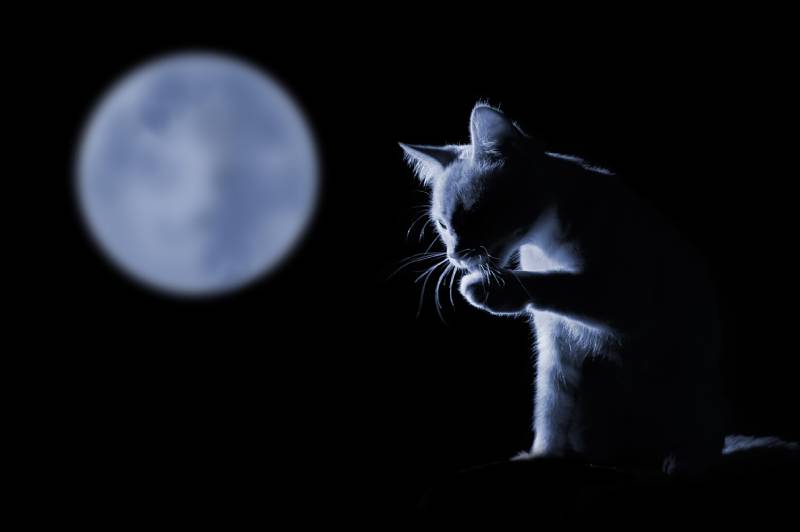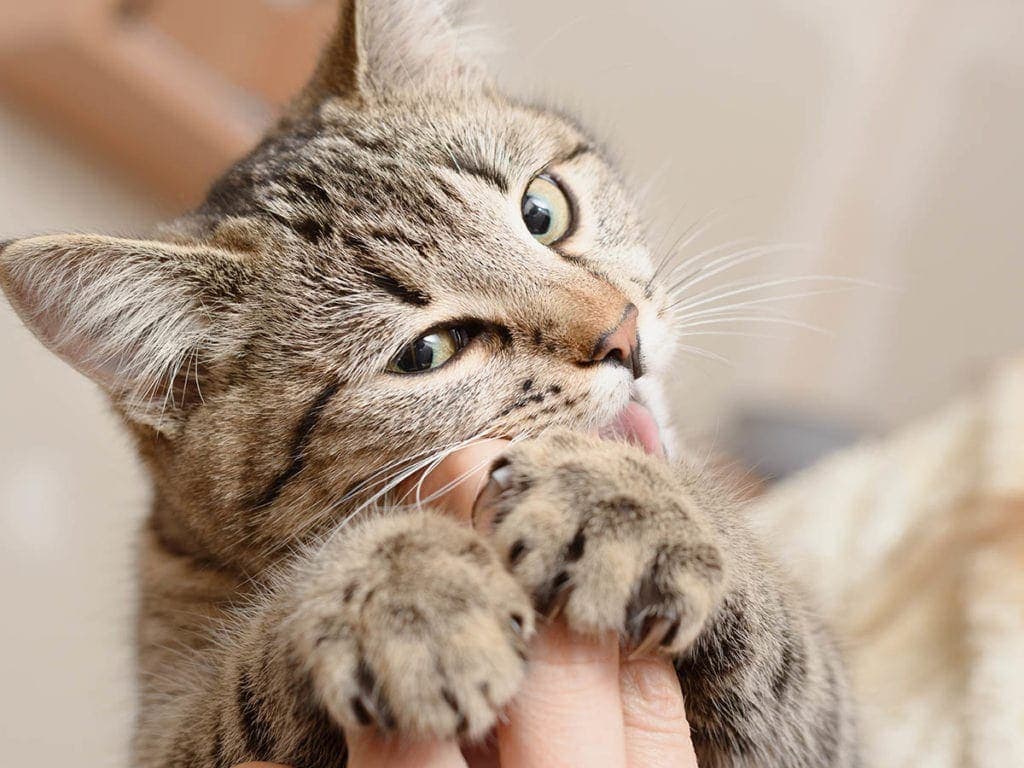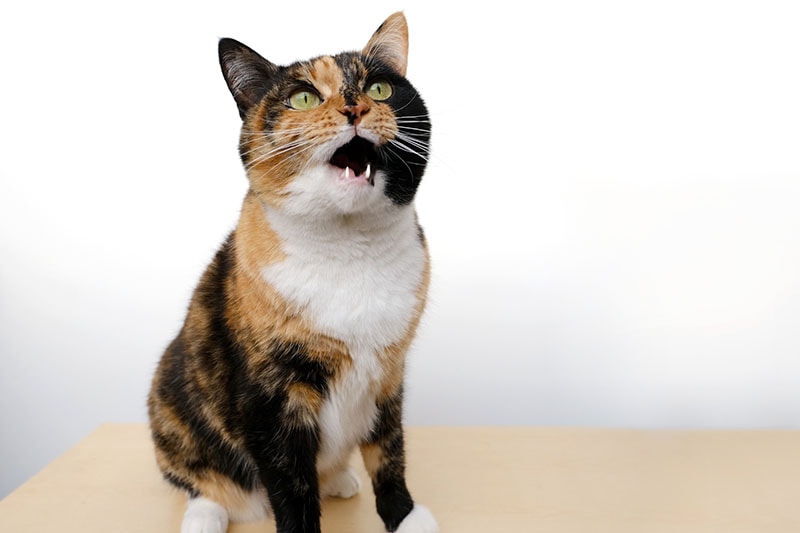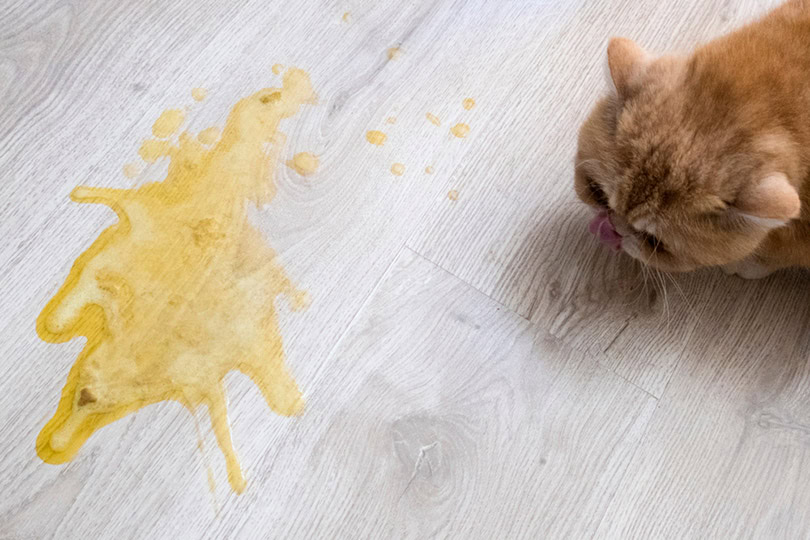VET APPROVED

The information is current and up-to-date in accordance with the latest veterinarian research.
Learn more »Click to Skip Ahead
The moon is a magnificent sight, and its gravitational pull is strong enough to cause tide changes in our oceans. It is also not uncommon to hear stories of people and animals behaving strangely during the full moon.
The idea that the full moon affects the behavior of animals, including cats, has been a topic of speculation and folklore for centuries, but even if it is untrue, some odd animal behavior patterns have been anecdotally connected to the lunar cycle.
As a general answer, much of the scientific community harbors doubt regarding the notion that the full moon exerts any substantial influence on animal behavior. In this article, we’ll discuss what we know about the full moon and its impact on our feline friends.

How the Moon Affects the Earth
Due to the incredibly strong magnetic attraction that exists between the moon and the Earth, the moon affects the Earth every day. When the Earth and the moon are closest to one another, the moon’s gravitational pull on Earth is at its strongest.
This varies as the moon cycle changes, and when the sun lines up with the moon and earth, that gravitational pull adds up. The resulting tides are caused by this force, which impacts the planet’s vast bodies of water. The tides are also at their highest when the moon is full.
We may sometimes act or feel oddly during the full moon, so it is not unreasonable to assume that all living things, including your cat, could be affected by the moon’s activity, given that our tides and many other natural occurrences depend on it.
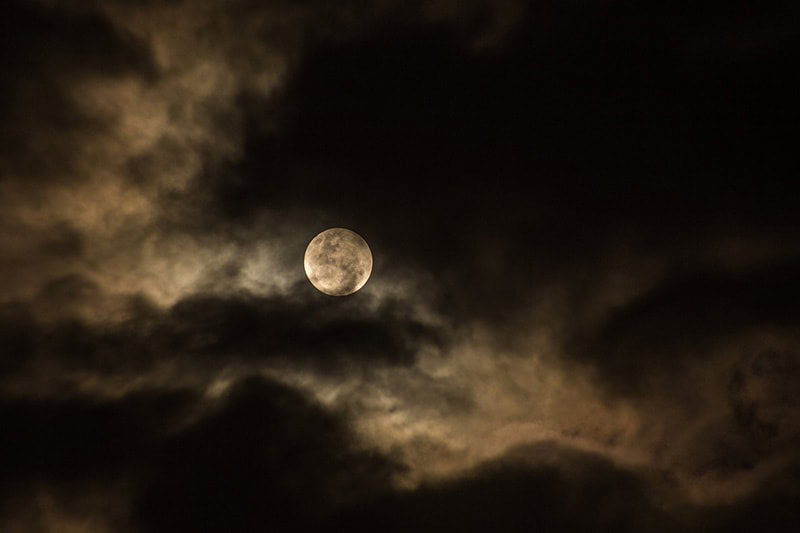
Does the Full Moon Affect Cats?
Several pet owners believe that their pets are affected during the full moon. While some dogs are known to howl like wolves, cats may display less obvious behaviors, such as hiding and behaving more mischievously.
However, the scientific community remains largely skeptical about the full moon having any significant impact on animal behavior. Studies conducted on various species, including domestic animals, have found little to no evidence to support the idea that the full moon affects their behavior in any meaningful way.
How cats are affected by the full moon is unknown, but there are statistics to show that veterinary clinics are generally busier during this phase. According to research by the University of Colorado College of Veterinary Medicine, cats may have a 23% higher risk of suffering an injury or another emergency during or close to a full moon, which was in reality only a fractional increase of 0.13 more emergencies during this day.
The causes of this are still unknown, but it could be because their owners may have been up longer at these times, and cats were more active or spent more time outside, which may increase the chance of injury, although cats are more active during low-light conditions.1
The effect on a cat’s circadian rhythm, which is a combination of physical, behavioral, and emotional changes, some believe may also play a role. However, most of this remains unknown and requires further scientific research.

How Are Cats Known to Behave During the Full Moon?
Some cat owners have observed that cats may seem to act more mischievously when the moon is full. However, certain cats might also be more likely to hide, meow, or be more vocal. Most of this is anecdotal rather than backed by science.
Another consideration that may impact the cats is human behavior during the full moon. If their owners are more active, unable to sleep, and staying awake longer, this can also cause the cats to change their behavior accordingly.
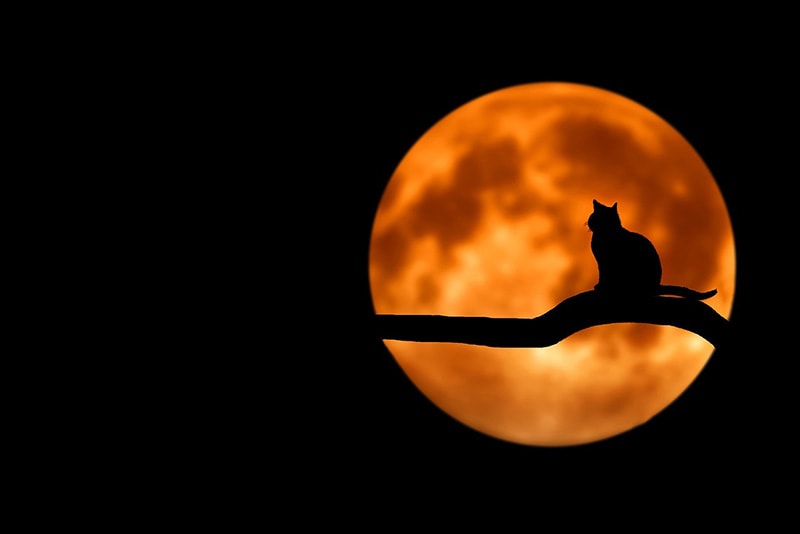
Do Other Phases of the Moon Affect Cats?
The belief that the moon’s phases can influence animal behavior is primarily based on folklore and anecdotal evidence. While it’s true that some animals, including cats, can be sensitive to changes in their environment, there is no conclusive scientific proof that the moon’s phases significantly impact their behavior.
The full moon is only one phase of the lunar cycle, and many believe that the other cycles of the moon may also carry a unique energy and have an effect on animals, including cats.
Cats are crepuscular, meaning they are most active during dawn and dusk. They prefer low-light settings when they can engage in hunting activities, and it’s been observed that free-range cats are more active during the new moon, while cats living in groups tend to be more active during the day, when their caretakers come to feed and interact with them.
Whether cats behave differently during various moon phases remains a mystery at the moment.
What Should I Do If My Cat Seems Affected by the Full Moon?
Unfortunately, it doesn’t appear like there is much consistent and evidence-based information when it comes to cats and the full moon. Many cats may not exhibit any obvious behavioral changes during the full moon. You could keep your cat inside for safety during the full moon and ensure your cat has a safe place to hide if they feel like it. If you are awake longer during this time, make sure not to leave any human food around and try not to engage them in any vigorous activities
If you notice changes in your cat’s behavior during a full moon, it’s essential to rule out any underlying health issues or environmental factors that could be causing the changes. If your cat becomes more vocal, restless, or exhibits other behavioral changes, it’s a good idea to consult a veterinarian to rule out any health concerns.
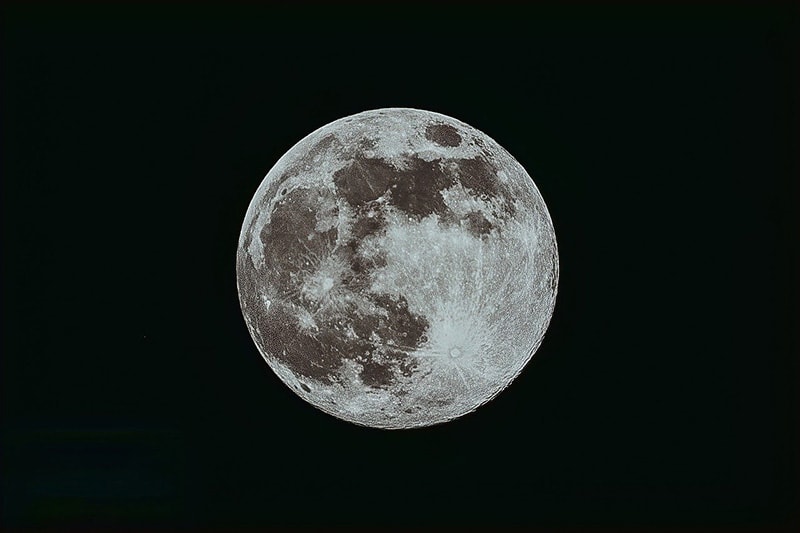

Final Thoughts
While the idea that the full moon can affect cats is intriguing, no scientific evidence supports this claim. Some owners may notice a change in behavior around the full moon, but other cats may show no difference. The more we learn about cats and their environments, the more we all come to know them.
If you have concerns about your cat’s behavior, it’s best to contact your veterinarian or a qualified animal behaviorist, but if all medical issues are ruled out, you may have to tolerate strange feline behavior during the full moon.
- Do Full Moons Affect Cats? – Express Vet
- Full Moon Effects on Pets – Animal Behavior College
- Canine and feline emergency room visits and the lunar cycle
- Assessing the circadian rhythm of cats living in a group using accelerometers – ScienceDirect
- Chronobiology of free-ranging domestic cats: Circadian, lunar and seasonal activity rhythms in a wildlife corridor – ScienceDirect
Featured Image Credit: Khorzhevska, Shutterstock
